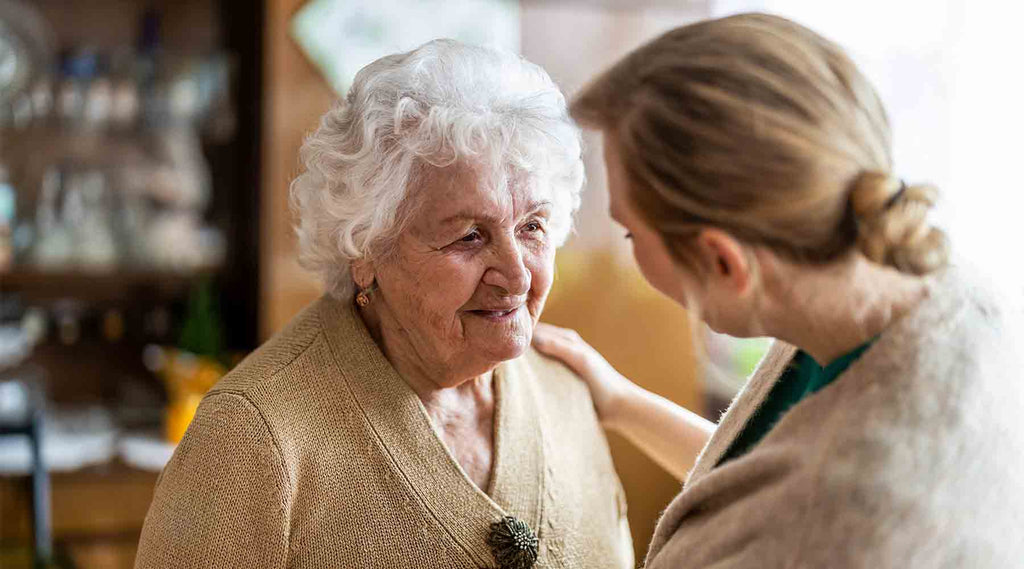
It can be difficult visiting someone with Alzheimer's or dementia - it can be hard to engage them in conversation, you may feel uncomfortable with some of the things they say, you just don't know what to do. What if it wasn't that way? What if you're visit was more meaningful for both you and the person you are visiting?
Visiting someone with dementia can brighten their day. Research shows that engaging a person with dementia in meaningful activity improves their quality of life. In a facility, staff do their best to provide activities for residents, but there is only so much that they can do. Your visit, whether at home or in a facility, can make a difference and we can help.
We have put together a selection of activities that are designed to be easy to present and easy to use. They stimulate cognitive function as well as helping with range of motion and dexterity. They encourage conversation and reminiscing. They are designed to be used by visitors of all generations, even young grandchildren.
Imagine you arrive for your visit and instead of not knowing what to do, you take out a brightly colored Keeping Busy Dementia Sequenced Puzzle and say "John, would you like to help me put this puzzle together?" (because you know that John used to enjoy doing puzzles). John, seeing the fun looking activity says "Ok, I'll try". Together you sit and do the puzzle. Of course John's answer may also be "No, I don't want to do it". If that's the case, you can simply say "Ok, do you mind if I sit here and do it myself, you can watch?". John is unlikely to say no, so you can start doing the puzzle. If John shows some interest in what you are doing, show him a piece and ask him if he can help find where it goes. In this way, you engage him in the activity. At the same time, because you know John loves birds you chose the "Around the Bird Feeder" puzzle and conversation about the birds in the puzzle flows naturally. In fact, you'll be amazed at how the conversation moves from the birds in the puzzle to seemingly unrelated stories triggered by the images, actions and conversation.
Of course if John never really enjoyed puzzles, you would choose a game or word search or one of the other activities that may be more appropriate. The result is the same - you have a nice visit and John benefits from it. If John is in a facility, the staff in the facility also benefit because John is more likely to be settled and happy as a result of the engaging activity.




